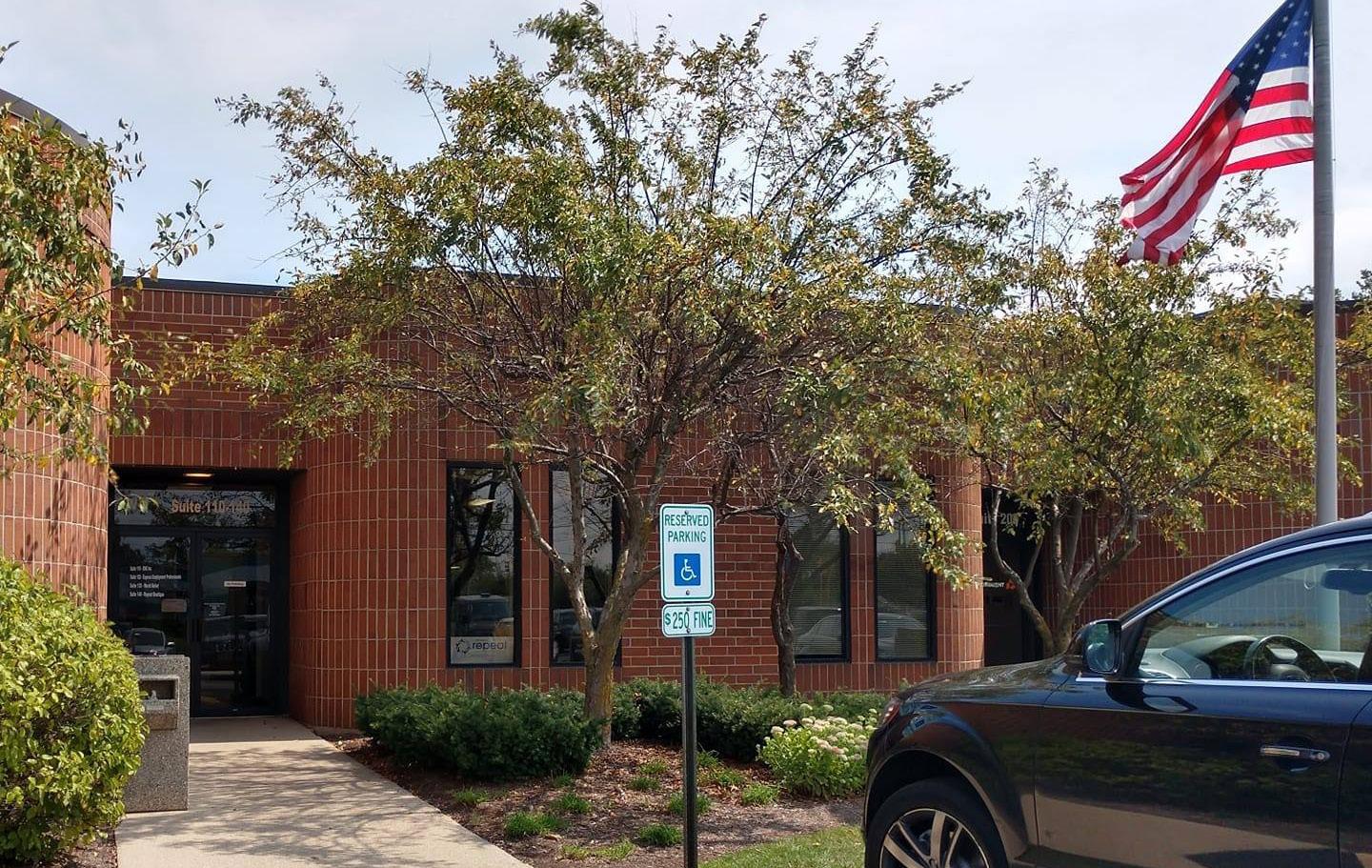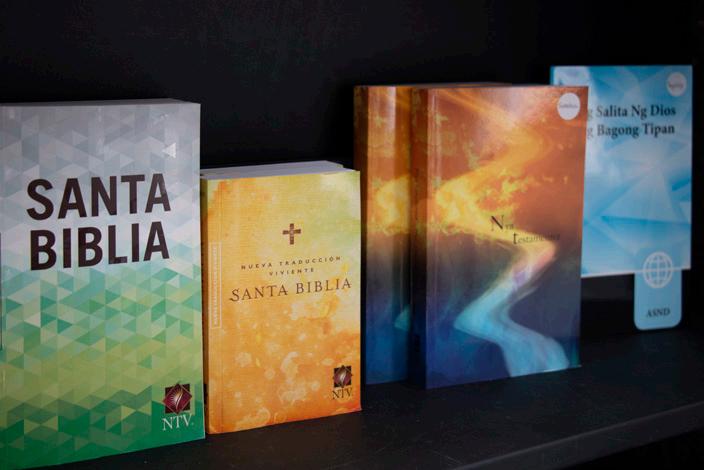
8 minute read
Before & After
Vijai Kuruppacherry
LIFE BEFORE CHRIST
They still call it “God’s Own Country”- the southwestern state of Kerala, India, known for its then-pristine lakes, lush, green hills and waterfront lowlands. A ponderous weight of history and romance lingers around its freshwater bays that shield the coast from the sea, called “backwaters,” recalling commerce with Ancient Israel, the Roman Empire, the Arabs, royal emissaries of the King of Portugal, led by Count Vasco da Gama, and then the Dutch, French and British traders who thronged its port city, Cochin (now Kochi). This is where I was born and spent the first seventeen years of my life. Legend has it that St. Thomas the Apostle landed in this region about ten years after Jesus’ resurrection and won many converts. Subsequent Jewish migration after the destruction of the temple in Jerusalem in AD 70 added numbers to both Jewish and Christian groups. Doctrinal differences, the Orthodox-Catholic split, and later waves of European traders changed the landscape considerably in the two millennia that followed. Every family, Christian or not, bears markers of this eventful past, sometimes remarkably well preserved and remembered to this day.
I was raised in a nominal Catholic family with stories of heroic conversions to Christ from an insular, Hindu-background centuries ago, but for all that, there seemed to be no anchoring conviction. We went to church every Sunday, went through the Sacraments and led lives that were not very different from those of non-Christians, but rooted in conforming to a set of acceptable behaviors in our close-knit community. Relationships were built around this code of conduct.
I was not well-informed about Catholic theology even though I scored well in my Catechism tests. Guilt and emptiness pervaded my life throughout this period. In hindsight, this may have been the result of traditions that privileged merit and earning good graces from authority figures – parents, teachers and church leaders – over forgiveness or grace.
I didn't think in terms of purpose, identity or security. I moved along life blind and directionless. Many others my age talked in very definite terms of what they wanted from life, from the colleges they wanted to attend to years far beyond. For some reason, I simply didn't think that far ahead.
THE LETDOWN
Changes in life circumstances always made me uneasy. We all experience change throughout life, and I now see how it affects my own kids. Moving to the city of Madras (now Chennai) for college was the first significant change I experienced. Nothing was predictable. People around me were different in temperament, and I felt truly alone for the first time.
Madras Christian College (MCC) was created in 1837 by Presbyterian missionaries for the purpose of evangelization among Hindu people groups in Southern India. Its high academic standing in liberal arts and reputation as a center for Christian education attract both secular Indians and highly committed Christians—a heady mixture, as though Wheaton College and Berkeley were merged together! It would have been commonplace to find kids smoking pot in a corner of the wooded, 365-acre campus, and not too far, another group strumming on guitars and singing praises to God. Not the kind of place most Christians would want to send kids, although from my experience, the danger of de-conversion was squarely on the secular side. Every year scores of unbelievers would come to faith. To date, I have not heard of a single case that went the other direction.
Every evening, our hall of residence, called Bishop Heber Hall (after Reginald Heber, the hymn writer who was the Anglican bishop of Calcutta) would have Compline services. They were very comforting, but I had no understanding of the forgiveness of God when I attended these. I joined the chapel choir to escape the mild hazing that went on among resident students on campus. I wasn’t familiar with the hymns, but the more I considered verses written by Isaac Watts, Reginald Heber, Augustus Toplady and others, the more I was intrigued by the strange mixture of chastisement and triumph in them, which I hadn’t encountered in the ones I’d heard at home.
I was searching, in my own fumbling way. I didn't know where to look or what I wanted, but I realized that I couldn't come to terms with my own blasé attitude and the rapidly changing circumstances in my life. My parents were anxious about me, and I didn't have an anchoring relationship that could guide me to find purpose.
A DIVINE AND PERSONAL TRANSACTION
The first time I heard someone speak about a personal relationship with Christ was my freshman year of college. There were older students who would come up to me and talk about this relationship they had with Jesus and ask me questions which, at the time, did not make much sense to me. The idea that Jesus died for my sins wasn’t new, but it did not occur to me that in this very relational, personal way Jesus had accomplished this for me. (I later learned that the students who had first told me about Jesus had been constantly praying for me.)
The cognition that the divine transaction was so personal didn't come until my senior year, when Raphael, a freshman, gathered up the courage to talk to me about this salvation. We began talking at 8:30 p.m.
The light dawned on me in the wee hours of October 7, 1995.
After several questions from me, which he tried to answer the best he could, he asked me if I was ready now to invite Jesus into my life. We prayed together, and that was it. But it took another month of Bible reading for me to begin to understand the nature of Jesus' sacrifice borne out of love for my sake that led him to the cross. During this month, inexplicably, many other students began to come to faith every day, as in a revival of sorts, and a campus-wide fellowship was hobbled together spontaneously.
THE BACKSTORY AND MORE
A month before my conversion, a close friend came to faith and invited me to go with him to a church service. While there, I talked to several church members who pressed me to make a commitment to Jesus. One was so persistent he let me know that if I didn't, after I died, I would find myself facing an entity with a pitchfork saying, “barbecue time.” After this unsettling conversation, I made up my mind to never commit to this strange faith that relied on fear to drive conviction.
But my friend's conversion still affected me strongly. I kept wondering what could have appealed to him – by all accounts a clear thinker and kindhearted person – to make such a commitment. After my own commitment, we had several conversations which solidified it. The campus fellowship that sprung up during this time became a proving ground for our nascent understanding of the Scriptures to be tested and refined, often in open conflict with unbelieving students around us who routinely ridiculed and sharply questioned our faith, to which we found ourselves frequently unable to respond adequately.
I was an avid journal-keeper, and still have some of my meditations from the period which I wrote down whenever I could. When I read through them, a picture of how my perspective of Jesus began to evolve emerges. The notes are very personal and intimate. One of the first questions a friend asked me about the day I became a Christian was whether I could sense any change in me. My answer was that I did sense a change, but I couldn't tell exactly what it was. I added that I hadn't uttered a single swear word because I didn't feel like it. This must have impressed him because he repeated it to others, and a day later committed his own life to Christ!
Looking back, I think my real struggle in giving my life to Christ was pride. As a kid in college with friends who routinely mocked the born-again Christians on campus, I felt afraid to lose the reputation I had built for myself as a carefree and confident young man, not given to superstition and parochial fables. During that all-night conversation with Raphael, however, that fear was mysteriously overcome with a strong longing to cast aside my meaningless bravado and face this insistent call to ask Christ into my life.
LIFE AFTER CHRIST
A lot of people talk about their conversion and the gradual changes in their lives, in their perspectives and attitudes. In my case, those first winds of change came fast and decisive. In my environment that marked one out by his choices in daily life, such as movies, books, music, words we used, eating and drinking habits, not to mention how we responded to the vulnerable and the poor, whether we responded with grace to people who sorely tested the limits of our patience, and other signs of allegiance, I was driven by zeal to identify with this new community of faith. But I came to understand that spiritual maturity, the kind that Psalm 1 talks about, comes from building a foundation of trust and loving dependence on Christ. This took much longer, and the process was much harder. I frequently joke with my kids that if I came to faith to be forgiven so I could just go to heaven, then the pastor who baptized me by immersion should have just held me down and I would have gone straight to heaven and skipped every trial that awaited me.
Over time, I came to understand that God's desire, expressed throughout the Bible, is in building his kingdom, restoring humanity and all creation, and we have the privilege of working with him to accomplish this.
In retelling my conversion, it has helped me understand the purposeful and unrelenting actions of God to fulfill his plan of redemption, and this strengthens me when situations don't look so good. In my workplace at a management consulting firm or in ministry, I have found that every defeat or disappointment has a place in this redemptive initiative. In the book Mountains beyond Mountains about Dr. Paul Farmer, who works with vulnerable populations in Haiti and Rwanda, author Tracy Kidder quotes Dr. Farmer reflecting on the fact that his work is about "fighting the long defeat." He goes on to say that we all want to be on the winning side, but he will not stop simply because he keeps getting defeated.
This captures our paradox well, of looking forward to assured victory and chasing defeat, but in Christ, we are more than conquerors and overcomers to whom the crown of life is given by the King himself.








